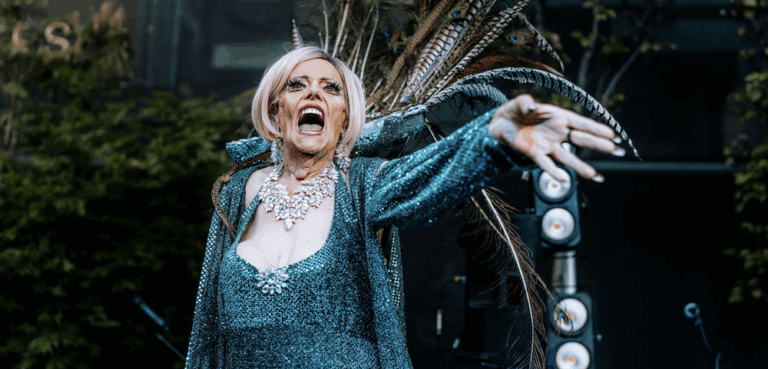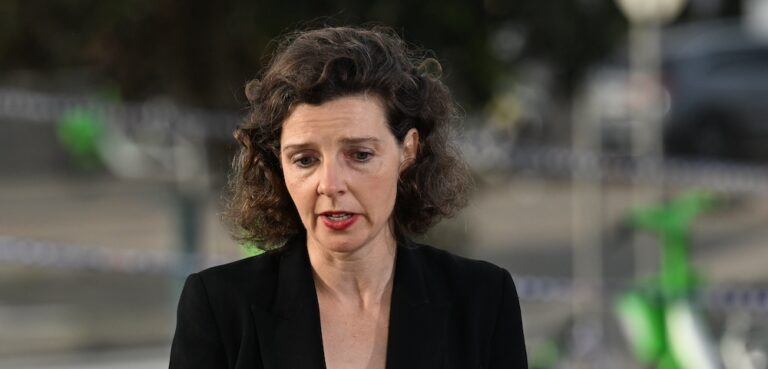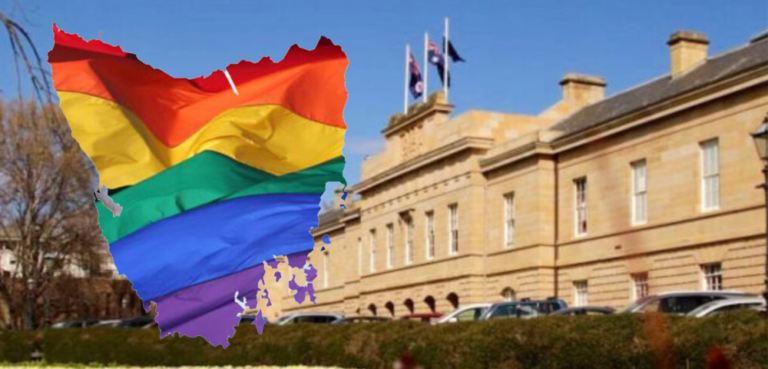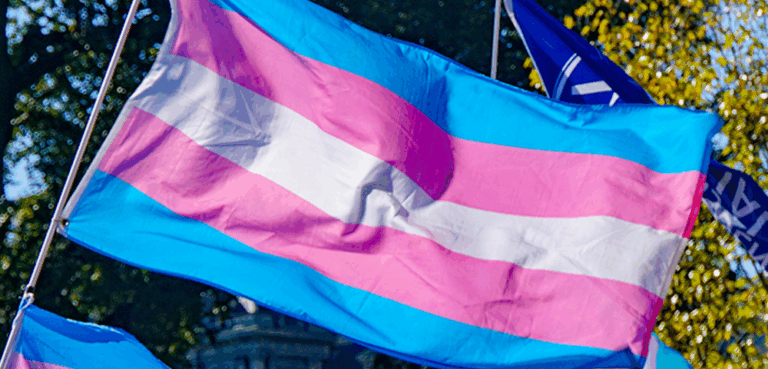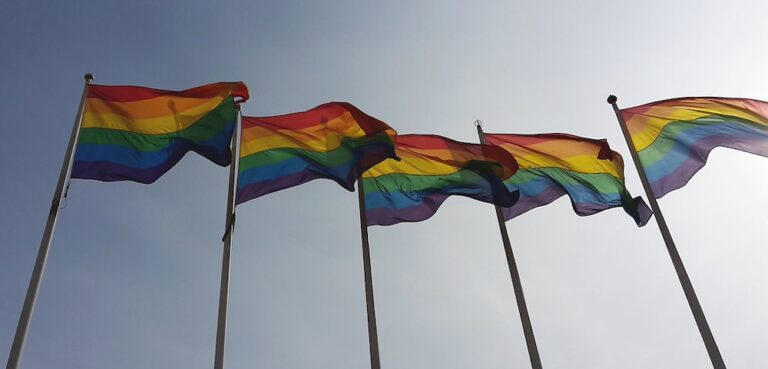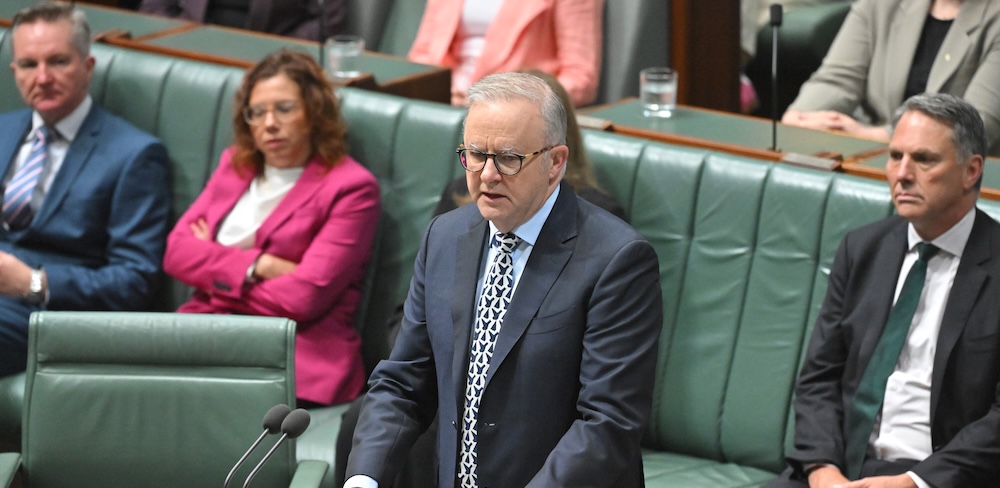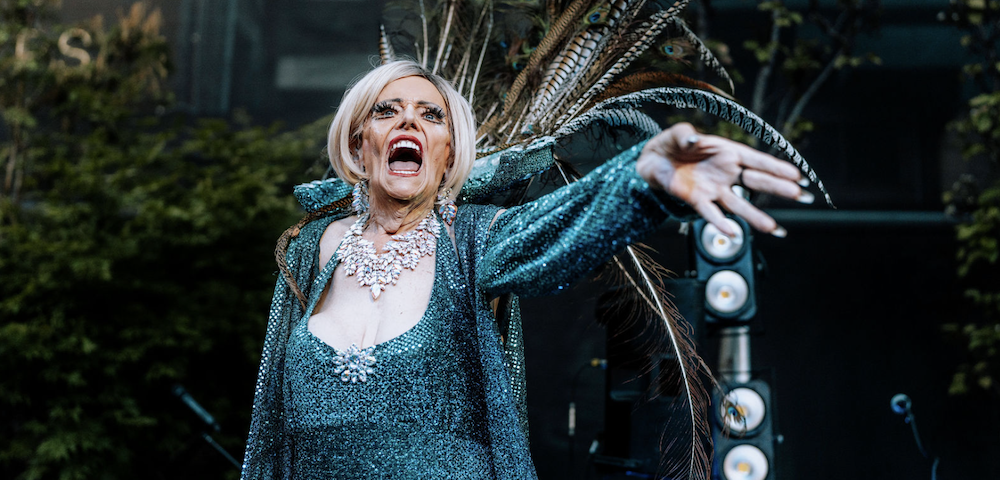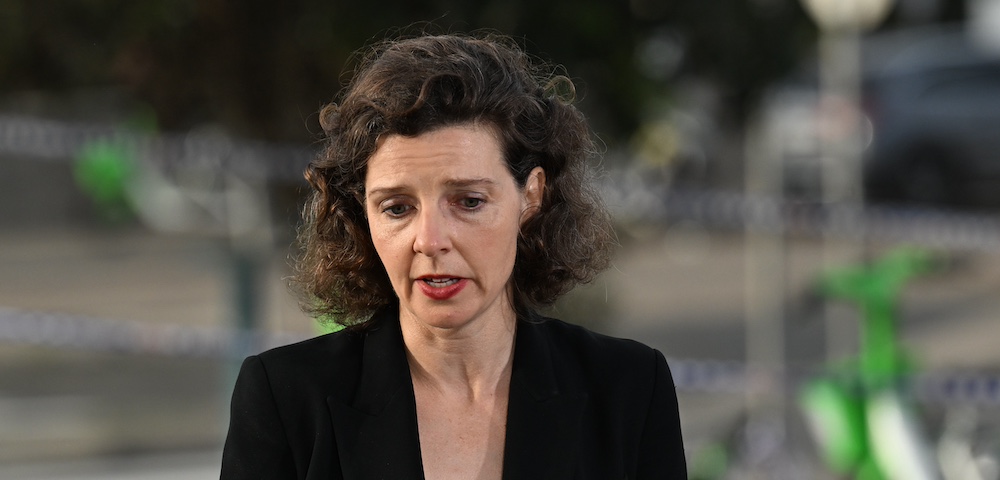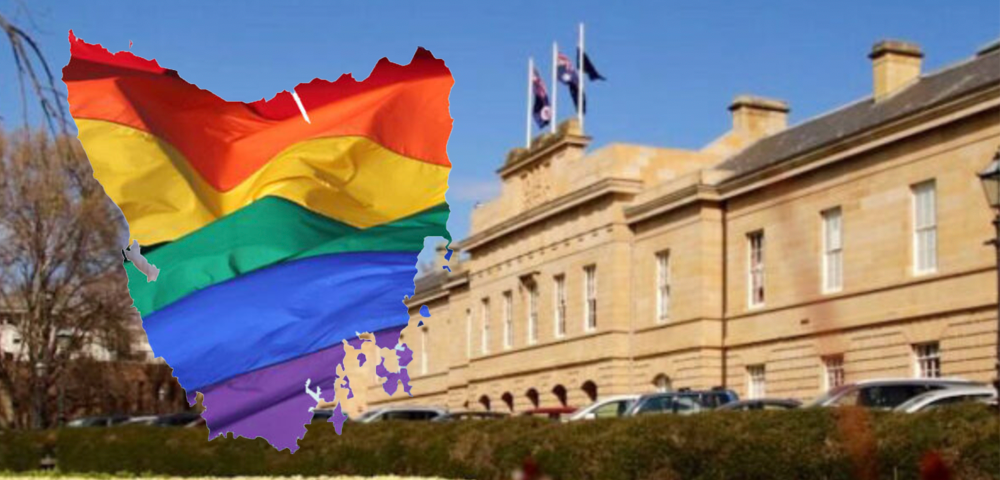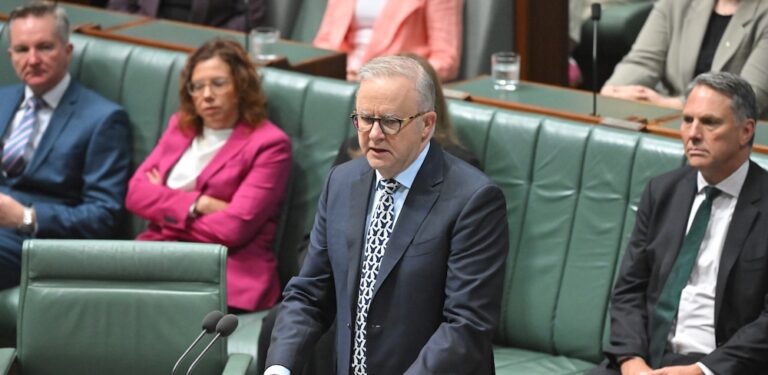
Historical Tasmanian campaign unfolds on stage
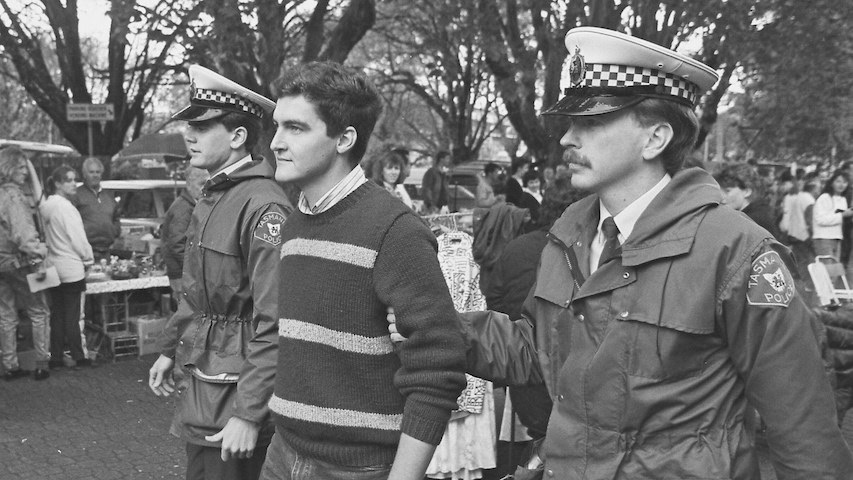
By Rita Bratovich
It was Campion Decent’s friend, director Matt Scholten, who sparked the inspiration for Decent’s new play, The Campaign.
“He’d just been down to Tasmania and stumbled upon the artwork, The Yellow Line, which commemorates the event of the arrests at Salamanca Markets,” explains Decent.
Scholten thought it would make an interesting play. Decent agreed; not only an interesting play but an important one.
Prior to law reform, Tasmania’s laws against homosexuality bordered on draconian. When a group of gay rights activists gathered in Salamanca Market in 1988 to collect signatures for a petition, the police intervened provoking a riot that led to 100 arrests. That triggered the historical decade-long campaign led by Rodney Croome that culminated in a United Nations ruling and ultimately saw the law repealed in 1997.
“Most young people today have no idea,” says Decent. He was shocked that the young actors who auditioned for the play had not knowledge of this event.
Christine Milne, who was a critical political player at the time, was interviewed by Decent for the play and said to him:
“I’m so glad you’re doing this because we’re losing these stories and we’ve got to find innovative ways of keeping our history alive. Not just so we know what happened but so we can learn from it.”
Milne was one of the many stakeholders whom Decent interviewed for the project. On Scholten’s suggestion Decent had decided to tell the story using verbatim theatre. He amassed interviews, media reports, statements, transcripts and other documents on key events and participants including Rodney Croome, Nick Toonan, Bob Brown, Michael Kirby.
“It was kind of lovely in a way because it was a synthesis between my dramatic work as a writer and my work as a gay journo, so it sort of brought both worlds together,” says Decent.
Creating a cohesive piece from the plethora of material was a lot of work but quite intuitive. The story inherently had a perfect dramatic structure.
“You had your protagonist, you had your antagonist, they were going on a quest, they ran into challenges, there were turning points, there were reversals, there was tragedy, there was triumph,” explains Decent.
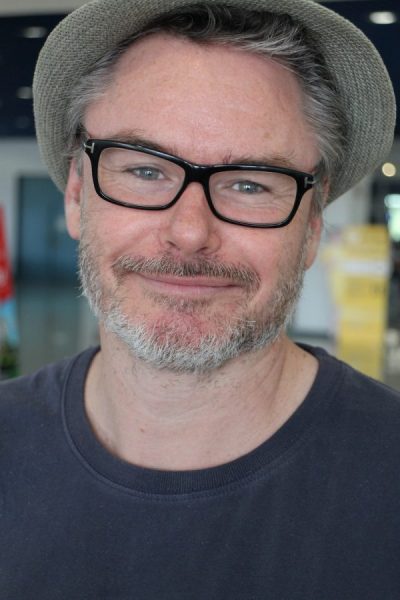
The staging is deliberately minimal. Five actors play several roles each. It’s not just a straight-forward bleating of quotes.
“There are some monologues in there but it’s more dynamic than that,” says Decent. “There’s kind of chorus work, if you like. There’s song and dance from the time.”
Decent really wanted to recreate the activist experience on stage – to dissect how a campaign such as this emerged.
“There’s a particular dynamic in the community politic about how you come together – despite any uneasy coalitions or any tensions – for the greater good in the face of a greater obstacle.”
The equal rights campaign in Tasmania saw lesbians and gay men co-operate on a common goal for the first time.
Another remarkable feature – something younger people will find difficult to imagine – is that technologies such as the internet and mobile phones had not been invented yet. Campaigners had to organise using fax machines, letters (snail mail), “telephone trees” and word of mouth. Decent tries to depict this by using a sparse set with occasional visual cues.
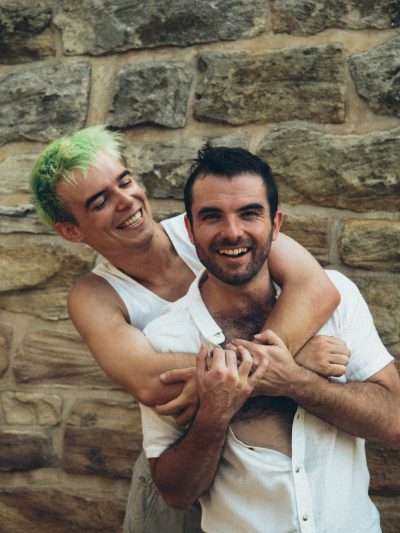
“Ideally the production aesthetic should reflect that kind of hand made element, to kind of give that sense of the story being largely […] set in the ‘80s and ‘90s.”
Given the impact this event had, not only at the time but consequentially, it’s extraordinary that it hasn’t been rendered on stage or screen previously. The significance, the messages, the learnings, still have a lot of currency, says Decent:
“It’s highly relevant today. If ever we need a story about a group of ordinary people coming together to try and drive and effect social change to create a better world, it’s now.”
MELBOURNE: Jan 29 – Feb 1, 9pm, 4pm; $20/$25; Gasworks Arts Park, 21 Graham Street, Albert Park; http://www.gasworks.org.au/event/the-campaign/
SYDNEY: Feb 11 – Feb 28, 7pm, 5pm; $30 – $45; Reginald Theatre, Seymour Centre, Cnr Cleveland St & City Rd, Chippendale; https://www.seymourcentre.com/event/the-campaign/
Feb 15: post show Q&A with playwright, Campion Decent, director, Kim Hardwick, and original campaign activist, Lee-Gwen Booth
Feb 19: Pre-show panel discussion with Rodney Croome AM, Julie McCrossin AM, the Hon. Michael Kirby AC CMG and Anna Brown OAM.
